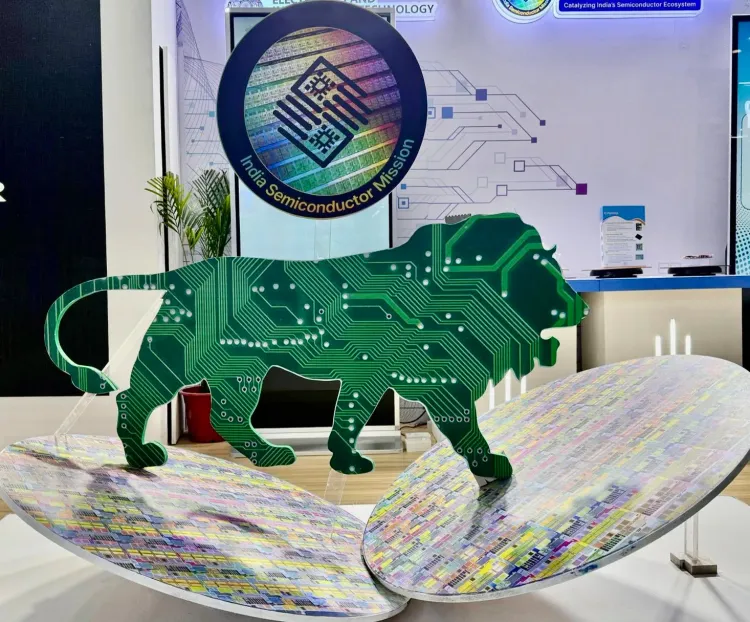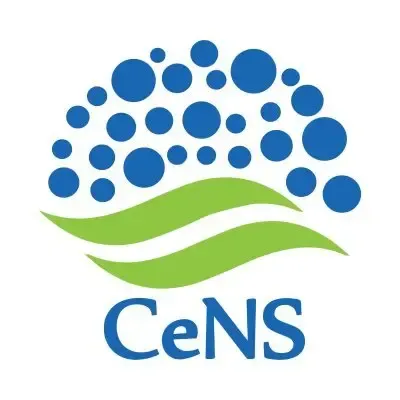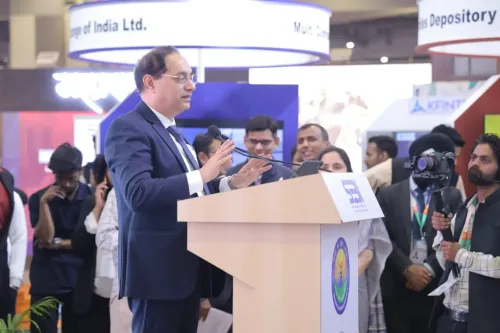Is India Making a Significant Move in Mature-Node Chip Manufacturing?

Synopsis
Key Takeaways
- India is focusing on mature-node manufacturing.
- The country aims to enhance capabilities in the 28nm to 65nm range.
- Significant investments are being made to attract global chipmakers.
- India is poised to play a crucial role in the global semiconductor supply chain.
- Recent project approvals mark milestones in the semiconductor journey.
New Delhi, Aug 17 (NationPress) India’s vision for semiconductors is gaining momentum as both the government and industry shift their focus towards mature-node manufacturing rather than pursuing advanced technologies. The country aims to enhance its capabilities in the 28nm to 65nm range, which is crucial for sectors such as automotive, telecommunications, and industrial electronics.
A comprehensive analysis by Bastion Research suggests that India’s strategy is a wise decision, positioning the nation to bridge a significant gap in the global chip supply chain.
While industry giants like TSMC and Samsung lead the advanced nodes of 5nm and 3nm, India is fortifying its strengths in the mature nodes that are vital for high-demand industries.
The report likens India’s current status to the semiconductor evolution seen in Taiwan and South Korea from the 1970s to 1990s.
It highlights that India’s role in system integration within the semiconductor value chain is rapidly advancing.
With a robust talent pool and a burgeoning ecosystem, India excels in integrating semiconductor components into sophisticated systems for sectors like automotive electronics, consumer devices, telecommunications, and medical technologies.
The report emphasizes that India already provides world-class integration services and is consistently expanding operations to meet global demand.
The global “China +1” strategy is also favoring India.
As businesses diversify their supply chains away from China, India is increasingly recognized as a dependable and cost-effective partner.
This trend is anticipated to help India secure a larger share of the global semiconductor market.
To bolster this ambition, the Indian government initiated the Rs 76,000-crore Semicon India Programme in 2021, providing incentives to attract international chipmakers, establish fabs, packaging units, and develop a local supply chain.
Currently, the emphasis remains on mature-node fabs rather than cutting-edge chips.
Progress is also accelerating on the ground. Earlier this month, the government approved four new semiconductor projects valued at Rs 4,600 crore in Odisha, Andhra Pradesh, and Punjab.
With these developments, the India Semiconductor Mission (ISM) now encompasses 10 projects across six states, with a total investment of Rs 1.6 lakh crore.
Prime Minister Narendra Modi, during his Independence Day address, reaffirmed the government’s commitment, declaring that made-in-India semiconductor chips will hit the market by the end of this year.
To date, six semiconductor plants have been approved, marking a significant milestone in the nation’s technological journey.
Experts note that while India may not yet rival global leaders in advanced chipmaking, its focus on mature nodes and system integration positions it as a crucial player in the global supply chain, ready to cater to industries requiring high-volume, essential chips.









